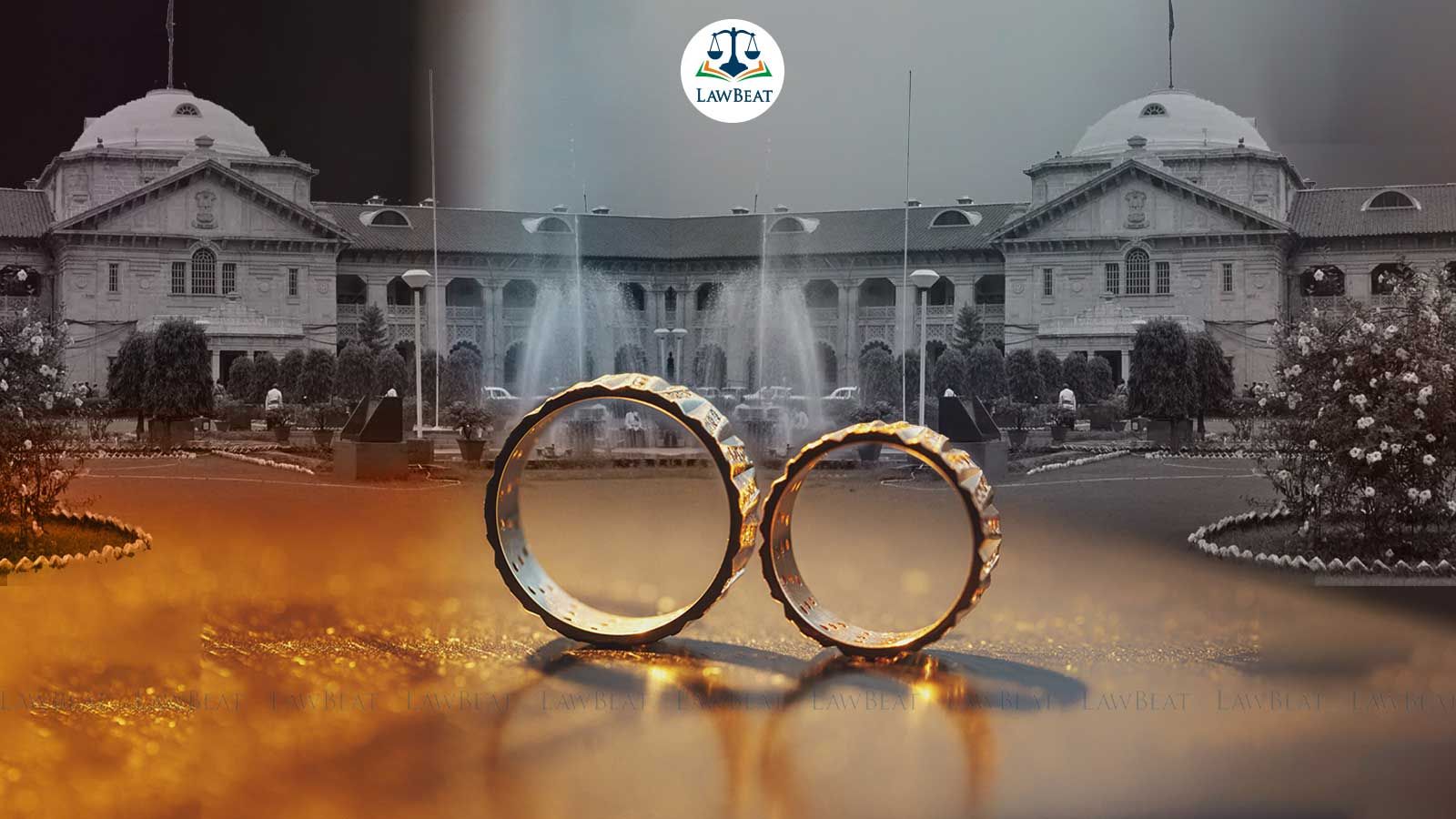Gender-Based Marriage Age Difference Nothing But A Vestige Of Patriarchy: Allahabad HC

Court said that the Prohibition of Child Marriage Act assumes, by unexplained legal fiction, that females cease to be "children" at 18, while males remain "children" until 21
The Allahabad High Court recently said that the artificial distinction drawn by Section 2(a) of the Prohibition of Child Marriage Act (PCMA) between male and female members of the population, is nothing but a vestige of patriarchy.
The division bench of Justice Saumitra Dayal Singh and Justice Donadi Ramesh said that the PCMA assumes that in our society a female would cease to be a “child” at the age of 18 years, purely by work of unexplained legal fiction, it also artificially assumes that a male would remain a “child” up to the age of 21 years.
The bench stated that on one hand, the legislature aiming to protect females from child marriage, which poses severe health risks due to early sexual exposure and childbirth, prohibited marriage involving females under 18, simultaneously, it 'used that legislative opportunity to confirm a pre-existing societal concern' and allowed males three additional years to better prepare—educationally and financially—for marital responsibilities.
Though the bench appreciated the positive legislative step, to allow three years further time for males to complete their education and gain financial independence, it took a strong stance against patriarchal norms stating that "by confining that opportunity only to the male population and by deliberately denying and equal opportunity to the female population, the pre-existing patriarchal bias existing in the society and the statutory law has been confirmed".
"A legislative assumption appears to exist that in a matrimonial relationship, it is the male who would be elder of the two spouses and would bear the financial burden of running the family expenses while his female partner would remain a child bearer or second party - not equal to the first, in all respects," the bench noted.
The observations were made in an appeal filed by a husband challenging the family court's decision to dismiss his plea to declare his marriage void under the Prohibition of Child Marriage Act (PCMA). He argued that both he and his wife were only 12 and 9 years old, respectively, at the time of their marriage.
Central to the dispute was the husband's delay in seeking declaration of his marriage being void. Although the PCMA permits a child to void a marriage upon reaching majority age, it restricts the timeframe for filing such petitions to two years post-attaining majority.
The wife opposed the appeal, arguing that since the man had filed plea for declaring the marriage void over two years after reaching the age of 18, the plea was barred by the limitation outlined in Section 3(3) of the PCMA.
In contrast, the husband contended that, under the PCMA, the marriageable age for a man is 21; therefore, the limitation period for filing under Section 3 should start only once he turned 21, making his filing before age 23 timely.
While dealing with the appeal, the high court first criticized the patriarchal underpinnings that often shape societal and legal views on marriage and gender roles.
Court, however, stressed that legislative intent under the PCMA was clear in protecting individuals, particularly young women, from the consequences of child marriage.
The judgment explored the interpretative nuances of terms like "child" and "majority" within the PCMA and Majority Act, highlighting how patriarchal perceptions often hinder fair adjudication. Court underscored that the statutory definition of “child” under PCMA, which sets 18 years for females and 21 years for males, does not imply societal readiness for marital responsibilities but is intended solely as a legal threshold.
The bench opined that any other reading could be influenced by outdated societal norms, which frequently assume females are mentally and physically prepared for marriage earlier than males, thus perpetuating gender bias.
However, to decide the appeal, the division bench referred to the top court's decisions in Independent Thought Vs. Union of India and another, (2017) read with Hardev Singh Vs. Harpreet Kaur and others (2020) and said that "once, the highest Court of the land has ruled that the male may have a right to seek annulment of a ‘child marriage’, up to the age 23, constitutionally, it is not for us to lay another law".
Observing thus, court held that the husband's suit to declare the marriage void was fully maintainable and within the limitation period prescribed under Section 3(3) of the PCMA.
Consequently, it set aside the family court's judgment, declaring the "child marriage" between the parties void. It also ordered the husband to pay Rs 25,00,000 to the wife for maintenance and housing.
Case Title: Sanjay Chudhary Vs. Guddan @ Usha
